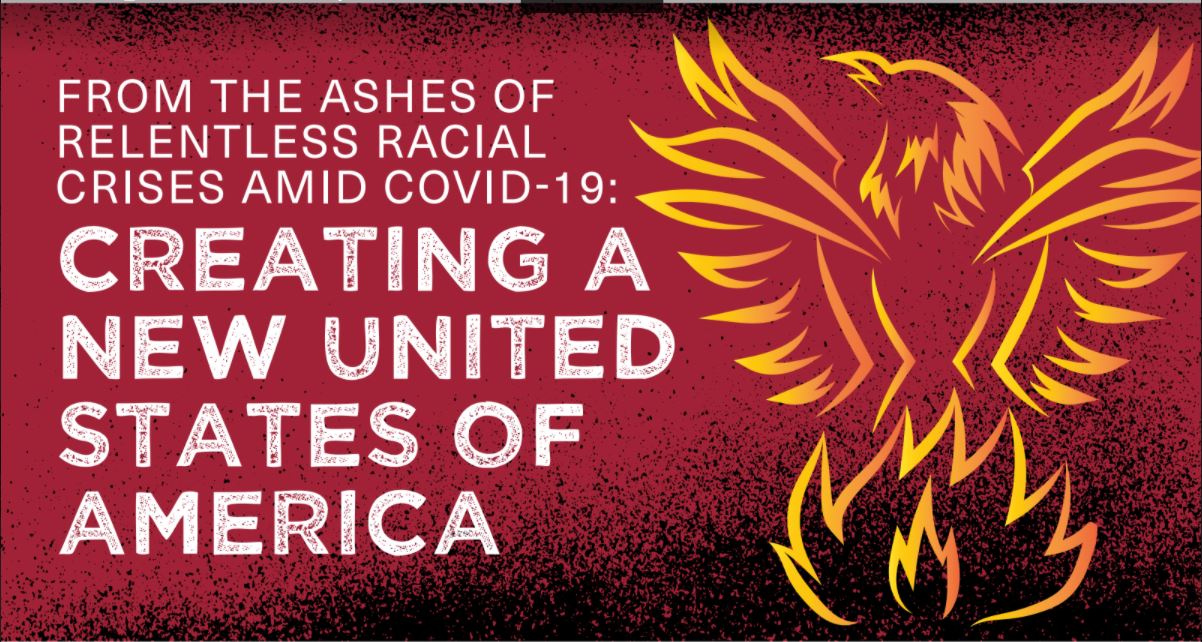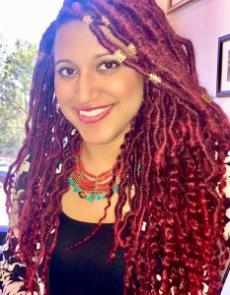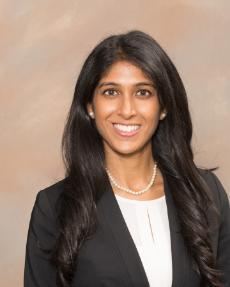‘From the Ashes’ Event Series Addresses Racism Amid COVID-19
The fall programming grapples with how COVID-19 is impacting contemporary racial crises, explores the historical roots of these issues and highlights the activism of younger generations.By: Kristine Yahna Todaro Thursday, October 15, 2020 09:46 AM

"From the Ashes of Relentless Racial Crises amid COVID-19: Creating a New United States of America,” a Fall 2020 event series for the Muhlenberg College community, is grappling with America’s dire current moment, in which various marginalized racial and ethnic groups are facing a catastrophic range of crises rooted in the violence of systemic racism that has been amplified by the COVID-19 pandemic. In addition to addressing the relationship between COVID-19 and contemporary racial crises facing Asian American, Black American, Latinx and Native American communities, the series will explore the historical roots of these devastating predicaments.

Emanuela Kucik, co-director of Africana Studies
Sponsored by the Africana Studies Program and the Office of Multicultural Life, the program series explores the experiences of the aforementioned communities through four events that are meant to be considered in conversation with each other. Taken together, the events highlight the need for solidarity as a crucial tool for dismantling many of the systems that uphold racial hierarchies.
As the series draws its name from the legend of the Phoenix, a mythological bird that regenerates from its ashes, a portion of each event will focus on the activism of younger generations, including Muhlenberg students, as they work to build a new, just world out of the ashes of the fires of relentless racial crises burning around them.
All of the events are free and virtual. Pre-registration through the given forms is required to receive the Zoom links.
The series' second event, “Genocidal Medicine: Black American Communities, COVID-19, and the Death Toll of Healthcare’s Systemic Anti-Blackness,” will take place on Thursday, October 15, from 7–8:30 p.m. To receive the Zoom link, please register by 4 p.m. on October 15: bit.ly/blam-register.
The first event in the series, “Battling Converging Pandemics: Asian Communities, COVID-19 and Anti-Asian Racism,” took place on September 29 and addressed the amplification of anti-Asian discrimination in the era of Covid-19.
According to Assistant Professor of Religion Studies Purvi Parikh, the student-led event “aimed to bring attention to the uptick in anti-Asian racism and xenophobia because of COVID-19 and the long history of discrimination against Asian communities in the United States” and "to highlight the work students are doing to dismantle” the systems that produce said discrimination. Parikh worked with and mentored two student organizations that center Asian identities, the Asian Students Association and Top Naach, to organize the event.
 Attended by over 120 Muhlenberg community members, Parikh (pictured left) says this was one of the first times since she began teaching at Muhlenberg that Asian students had a chance to publicly share their experiences with racism and xenophobia both on and off campus. The program received accolades from those who participated, and Parikh adds that she was proud to lead the event, which was an important step in making visible issues that are often unknown or erased at predominantly-white institutions.
Attended by over 120 Muhlenberg community members, Parikh (pictured left) says this was one of the first times since she began teaching at Muhlenberg that Asian students had a chance to publicly share their experiences with racism and xenophobia both on and off campus. The program received accolades from those who participated, and Parikh adds that she was proud to lead the event, which was an important step in making visible issues that are often unknown or erased at predominantly-white institutions.
The “Genocidal Medicine” program on October 15 will examine the disproportionate COVID-19 death rates in Black American communities through the lens of genocide. While the virus does not target specific groups, the United States has a long history of genocidal, anti-Black practices in the healthcare industry that laid the foundation for COVID-19’s catastrophic effects on Black communities. From torturous eugenics experiments on Black women that “inspired” the Nazis; to the brutal Tuskegee Syphilis Experiment; to the contemporary neglect of pregnant Black women’s needs; to a world of genocidal practices in between, the healthcare system in the United States has exploited, experimented upon, profited off of and failed Black communities.
The program will present an overview of this history and the many healthcare system violations of the United Nations’ Genocide Convention, and it will discuss how this history merges with the current COVID-19 crisis. Using archival headlines from historical Black newspapers and contemporary social media stories, the event will chart how multiple generations of Black communities have tried to harness the power of media to tell the story of—and to end—genocide against them in the United States. The presentations will also shed light on Black doctors and community members who have fought these practices and will include a focus on how young people are using social media as a form of activism to amplify the voices of those who are suffering under this system. The event will also include ample opportunities for those in attendance to engage with the presentations and to share their thoughts, experiences, feelings and ideas for solutions.
The event will be co-facilitated by, and will include presentations from, Emanuela Kucik, assistant professor of English & Africana Studies, Africana Studies co-director and Black Student Association (BSA) advisor; Roberta Meek, lecturer in Media & Communication and Africana Studies; Giovanni Merrifield, BSA president and Hailey Petrus, BSA vice-president. The discussion portion of the event will be moderated by the BSA executive board.
November brings two events in the series. On Tuesday, November 10, from 6–7:30 p.m., the program will focus on Latinx communities and will be facilitated by Assistant Professor of Theatre Leticia Robles-Moreno and Comunidad Latinx student leaders.
The focus will be on Indigenous and Native American communities on Tuesday, November 17, at 6–7:30 p.m. The program will feature Brittany Hunt, a member of the Lumbee Tribe and a doctoral student at the University of North Carolina at Charlotte with a master's of social work from UNC-Chapel Hill. She developed and operates the American Indian Urban Education Division at the Urban Education Collaborative. Hunt's research interests include the experiences of American Indian students in education, with a specific focus on how the K-12 system disenfranchises Native history in the classroom and the effects of that disenfranchisement on American consciousness and Native cultural identity.
The program will be facilitated by Kucik along with Director of the Multicultural Center Robin Riley-Casey and Assistant Director of Multicultural Life Kiyaana Cox-Jones.
For more information about “From the Ashes,” contact Professor Emanuela Kucik at [email protected].
